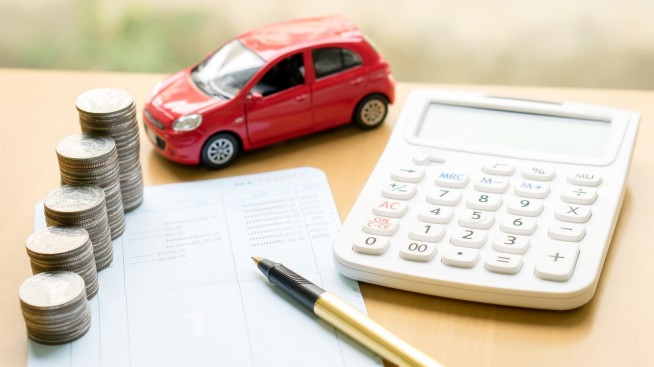Should I consider paying my car loan off early?

Does this sound like you?
You have a new(ish) car. You have a substantial monthly payment. You have a bit extra stashed away. Then, you may be wondering what it’d mean for you to pay off a car loan early.
Not only will you likely have better monthly cashflow to apply to other things (Retirement? Your next vacation? Credit cards with high interest rates?) but you may also benefit in other ways. So, let’s explore when and how paying off a car loan early can benefit you.
The perks of paying off a car loan early
Before jumping into the how, let’s look at some examples of why paying off your loan ahead of time can benefit you. You can…
- Free up monthly income for something else
- Save money on interest
- Potentially improve your credit
- Avoid owing more than your car is worth
Should I consider paying my car loan off early?
As you can see, there are potential benefits to paying off a car loan early — but before you make any changes, consult your lender. Things may not be as straightforward as sending your bank a big check to call it a day. Some loan agreements have early payment penalties which would derail the whole purpose of paying off your loan early.
Saving money on interest
If paying off early seems like a good idea, it’s time to strategize. The main perk of paying off a loan early may be saving money on interest if you have a simple interest loan.
Why you may not want to pay off your loan early
You may decide that it isn’t worth paying off your auto loan early. You could discover your lender charges a prepayment penalty, you have other higher interest loans or credit cards that are worth paying off first or that paying off the loan early will stretch your finances too thin. Some people, for example, like to keep a “cash cushion” available to weather emergencies, which could be significantly impacted if paying the full balance of a car loan.
In some cases, paying off your loan early could improve your credit, but keeping your loan can build credit too, by making payments on time and building a credit history, among other factors. But if you already have good credit, it may not make a difference.
What happens when you pay off a car loan?
Once you’ve paid off your car loan and the terms of your contract are satisfied, you should expect the title or release document for the vehicle soon after. Upon receiving the necessary documents, you will need to get the title of your vehicle legally transferred under your name by going to your state’s motor vehicles department.
Paying off a loan early: five ways to reach your goal
Once you’ve decided you are going to pay down or pay off your loan early, there are five ways to reach your goal:
- Make a full lump sum payment. Making a full lump sum payment means paying off the entire auto loan at once. Consult your lender to see how much your loan payoff is. This will include the remaining balance including interest and any outstanding fees based on the day you plan on making the payment. If you find that you have the cash to make a full lump sum payment, this is a great way to knock out your loan all at once.
- Make a partial lump sum payment. If you received a bonus or saved up some extra cash, you can put down a couple months’ worth of payments to get ahead of your loan schedule. This can help you pay your loan off faster, and therefore help save money on interest.
- Make extra payments each month. This can be done by making bi-weekly payments of your choice, throwing in an extra $50 when you feel so inclined or even doubling your payment if you find yourself with some extra cash.
- Make larger payments each month. An easy way to do this is by rounding up. Say you pay $564 a month, round up to $600 each month instead. The difference will feel small to you but can compound. You can also calculate what a monthly payment would be with a shorter loan term and start paying based on that. For example, if your loan is 24 months long, start calculating what your payments would be on an 18-month loan and make payments based on that.
- Request extra or larger payments to go toward your principal. Your lender may not allow this as an option, but if they do it can help you build equity faster rather than payments going towards mostly interest each month.
The bottom line
Depending on your financial circumstances and the terms of your loan, paying off your car loan early may be a smart move. Or you may find it beneficial to remain on track with your standard payments. Whatever you’re thinking, we recommend checking with your lender to avoid any extra fees or penalties.



